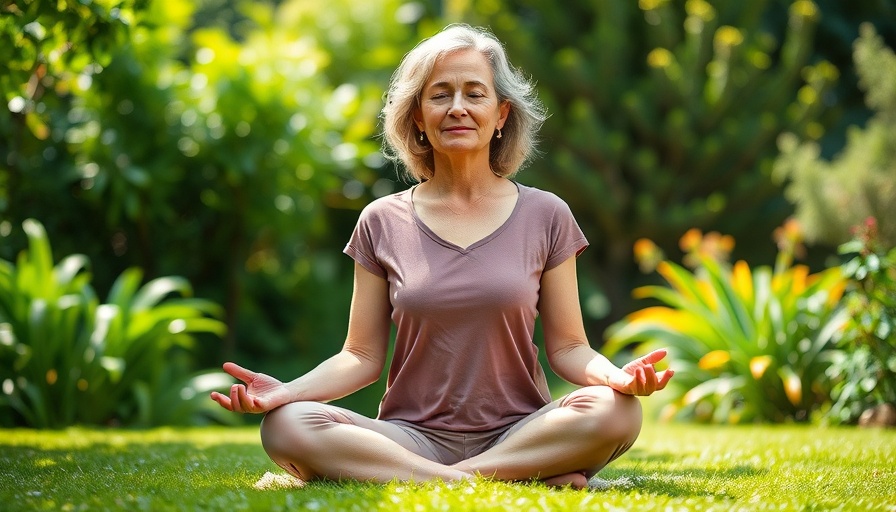
Understanding Menopause: A Natural Transition
Menopause is a significant life transition that every woman will face, yet it often isn't discussed openly. This lack of dialogue can lead women to feel isolated during what can be a challenging phase of life. Hormonal changes can introduce a slew of symptoms, including mood shifts, sleep disturbances, and physical changes. For women actively involved in sports and outdoor activities, these symptoms can disrupt not just their physical performance but also their mental clarity and emotional stability.
The Importance of Mindfulness During Menopause
The journey through menopause is one where mindfulness can play a crucial role. Mindfulness practices, such as meditation and reflective journaling, can aid in navigating the emotional and physical challenges of this transition. Research has shown that mindfulness can reduce stress, improve mood, and increase overall well-being. For individuals heavily engaged in physical activities, maintaining mental clarity is essential not just for performance but for the enjoyment of their pursuits. The Mindful Menopause Guide, developed by Happier Meditation, provides tools for women to reconnect with themselves, enhancing not just their mental health but also their capacity to engage in sports and outdoor activities.
Expert Insights: Emotional and Physical Benefits of Meditation
Diane Winston, a mindfulness expert, emphasizes the power of meditation to create a calm space within oneself during the tumultuous changes of menopause. Her guide includes meditative practices specifically targeted to support hormonal imbalances and emotional fluctuations. For athletes and outdoor enthusiasts, maintaining emotional balance directly correlates with physical performance. Athletes benefit from being able to focus and center themselves during competitions. Mindfulness techniques can help manage stress and anxiety, ensuring that one remains composed and focused, particularly in high-stakes environments.
Exploring Community Connections
While the experience of menopause is personal, connecting with a community can enhance this journey. Women sharing their experiences with each other can foster an environment of support and understanding. Organizations and online platforms focused on women’s health can provide spaces to discuss struggles, strategies, and successes. This collective awareness not only normalizes the conversation around menopause but allows individuals to draw strength from one another, making the process of navigating these changes less daunting.
Actionable Insights: Implementing Mindfulness Practices
For individuals interested in incorporating mindfulness in their daily routines amid the challenges of menopause, practical steps can be taken. Setting aside a few minutes each day for meditation or journaling can significantly improve outlook and emotional health. Simple practices such as mindful walking in nature or engaging in yoga can also integrate mindfulness into an active lifestyle, thus maintaining physical well-being alongside the mental.
Future Trends in Mindfulness and Women’s Health
The intersection of mindfulness practices and women’s health is poised for growth as more individuals seek practical, holistic approaches to managing life's natural transitions. The resources emerging from experts in this field suggest a future where mindfulness is an integral part of health care for women, particularly during menopause. As awareness and accessibility to such guides increase, the stigma surrounding menopause can diminish, leading to a healthier, more accepting environment for women of all ages.
Conclusion: Embrace Your Journey
Navigating menopause doesn't need to be a solitary struggle. Utilizing resources like The Mindful Menopause Guide can empower women to embrace this phase with confidence, clarity, and community support. By fostering open conversations about menopause and integrating mindfulness into daily life, women can emerge not only unscathed but positively transformed by this natural transition.
 Add Row
Add Row  Add
Add 




Write A Comment